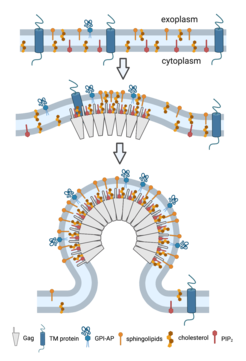Balázs Fábián Pursues a Flourishing Scientific Career
Why he chose the academic career path and what motivates him
The academic career path remains one of the most common and most desirable ones among scientists. Why is that and what does it mean to pursue an academic career?
We asked our postdoctoral researcher Balázs Fábián. Starting with his Bachelor thesis, he has been working in academia for more than 10 years and was recently awarded an Alexander von Humboldt Research Fellowship for Postdoctoral Researchers. Academic research is deeply close to his heart. Read here why.
Interview by Katharina Kaefer
Balázs, tell us a little about your professional life. What have you studied and where have you worked so far?
I studied Chemical Engineering in Debrecen and Budapest in Hungary. Afterwards, I did my PhD at the University Bourgogne Frache-Comté in Besançon in France and at the Budapest University of Technology and Economics in Hungary. During my PhD, I investigated physical properties, e.g. the lateral pressure, of fluid-fluid interfaces by molecular dynamics simulations. After two years as a postdoctoral fellow working on simulations of lipid bilayers at the Czech Academy of Sciences in prague in the Czech Republic, I joined the group of Gerhard Hummer at the Max-Planck-Institute of Biophysics as a postdoc in 2021.
Why did you become a scientist and when did you decide to do so?

I can tell you a little anecdote about that. When I was in kindergarten, I used to tell my granddad, who was an agricultural engineer, that I would either become a tractor driver or a scientist. During harvest season, he took me out to the fields, and asked one of his friends to take me for a short ride on his tractor. After about twenty minutes of bumpy ride in the tractor under the scorching sun, we stopped, and I up went to my grandad and told him: ‘Grandpa, I made I up my mind… I’d rather be a scientist.‘
Many people imagine scientists working in the lab all day wearing a white coat and safety goggles. However, this is not always true, not for you either. Could you tell us about your research and a typical working day?
That is right. I do not work in the lab at all. Of course, I cooperate with other scientists who work experimentally but I usually sit in front of my computer, programming and running simulations. I also prepare publications, talks and posters and I visit conferences to communicate my research. Furthermore, an important part of my postdoc work is teaching and guiding younger scientists in their research activities.

In my current project, I mainly study enveloped viruses. Every virus consists of a protein capsid that contains its genetic material in form of DNA or RNA. Some viruses have an additional lipid bilayer envelope. During viral replication, the virus can use the host cell’s membranes to build up this envelope which can help it to escape the host’s immune system. Like this, enveloped viruses may, in contrast to non-enveloped ones, leave the cell without destroying it. The virus attaches to the membrane which then forms a bulge before the virus particle is pinched off. This complicated process of exiting the cell is also called budding. In my work, I am specifically interested in how HIV exits the cell and want to capture the key features of viral budding. Using molecular dynamics simulations, I investigate the effect of various factors such as membrane composition or curvature on the sorting of lipids and proteins at the viral assembly site.
Why did you decide to pursue the academic path after your doctorate?
I made the choice to pursue an academic path during my Bachelor’s. Back then, my research topic was a class of exotic chemical reactions called oscillatory reactions. This was also when I started to leave the lab behind and got interested in computational modeling, albeit only for myself.
There are plenty of career options for scientists. Have you ever thought about doing something else, like working in the industry, founding a company or becoming a science communicator?
So far, I have not seriously considered working in the industry or choosing any other science-related career option. It is, for sure, very interesting to work in science communication or entrepreneurship, but I also feel that this would require a lot of additional training and considerable amount of work in different fields which would significantly distract my attention from research.
However, I am also aware of the difficulties of following the academic career path: fixed-term contracts and frequent relocation. For this reason, I do not exclude working in the industry in case I cannot obtain a permanent position.
Why is the academic career path the right one for you despite those difficulties?
It gives me intellectual freedom and the opportunity to investigate the captivating scientific questions I am interested in. Also, I love to continuously learn more about many fascinating physical and biological phenomena.
You received a Humboldt Research Fellowship for Postdoctoral Researchers which is a great achievement. Congratulations! What does it mean to you and how does it help you with your career?
The Humboldt fellowship is a prestigious award and, therefore, a recognition of my work. It motivates me to try to achieve more. The fellowship also helps me form ties with Germany, and prepares me for a successful academic career.
What are your plans for the future?
First of all, I would like to concentrate on the successful completion of my Humboldt research project. In the meantime, I will also try to make the best use of the resources of the institute and the Max Planck Society to have a better chance of becoming a junior research group leader. For this purpose, I plan to submit a proposal to the Emmy Noether program after the end of the Humboldt fellowship. I consider leading a junior research group an amazing opportunity and great responsibility, and I am looking forward to it.
Thanks, Balázs! That was very inspiring. We wish you good luck with your career plans!













